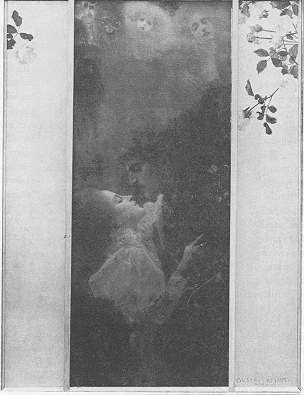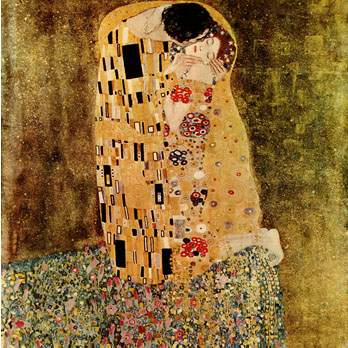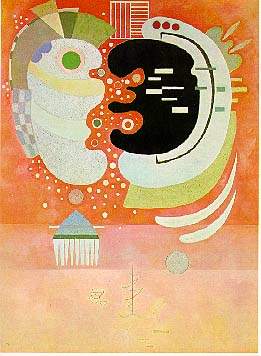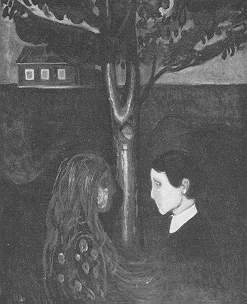|
 |
 |
| 資源型式:
自行填入
|
| 提供者:Kate Liu / 劉紀雯 |
|
|
|
|
Romantic Passion
|
| |
Cultural Product or Natural/Universal
Feelings?
--Is romantic passion our innate feelings, an acquired ability, or a
product of Western culture? Does it occur in
a
close-knit society?
--What are the
common attributes of
romantic love/passion for college students in Taiwan?
--Can we distinguish between the romantic love in us and in romance and
soap opera? |
| |
 Definitions Definitions
 General Comparison of
Different Kinds of Love in History General Comparison of
Different Kinds of Love in History
--Traditional Concepts: Before the Romantics (Please go to 17c British
Lit.)
--Romantic
Love & Courtly Love
--Victorian
Love & Modern Love
 Definition of
Romantic Passion from a Sociological Perspective Definition of
Romantic Passion from a Sociological Perspective
--Where
Does "Romantic Love" come from?
--What
Is It For?
 Cultural Expression
of (Romantic) Love Cultural Expression
of (Romantic) Love
--The
Romantic and Liebestod (Love Death)
--Pre-Raphaelite
--Modern
--Contemporary
(Chinese Lyrics on Romantic Love)
|
| |
| |
 Definitions Definitions |
| |
- "Presently romantic passion (or romantic love or
infatuation) is defined as any intense attraction involving the
idealization of the other within an erotic context. The
idealization carries with it the desire for intimacy and the
pleasurable expectation of enduring for some unknown time into the
future." (4)
- "Romantic passion draws on...several psychological
processes that range from erotic
stimulation, emotional attachment, and subjective idealization" (4 underline added).
-
core
properties: "1) the desire for union or merger; 2)
idealization of the beloved; 3) exclusivity; 4) intrusive thinking
about the love object; 5) emotional dependency; 6) a reordering of
motivational hierarchies or life priorities; and 7) a powerful sense of
empathy and concern for the beloved" (5).
|
| |
 General
Comparison of Different Kinds of Love in
History General
Comparison of Different Kinds of Love in
History |
| |
Romantic
Love & Courtly Love
Romantic love compared with courtly love, realist
and modernist views (from The Nature of Love 3: The Modern World. Irving Singer. Chicago: U of
Chicago P, 1987)
-
Romantic
love and courtly love--"Romantic love deviates from courtlly love by interpreting beauty or goodness in terms of the
erotic experience itself, with the result that sexuality takes on
greater significance. ...In Romantic love, the
elevation of the male occurred through an idealization that often
had nothing to do with
the beauty of women.
This new ideal was the modern concept of heroism: self-sacrifice in the
interest of humanity, the nation, a revolutionary cause,
the demands of one or
another art.
...Seeing in everyone
and everything [not
necessarily a beauty or a lady] the ability to become love''s alter
ego, romanticisim develops a segment in
the theme
of magic that had
previously been neglected. ...love itself is now
magical" (p 14, 16, 18-19; underline added)
- problems with Romantic love,
compared with
realist view. "If love is the search for an unknown, if it does
not presuppose much knowledge about another person, it two people merge
through an experience that reveals divinity but has no objective basis
in what they are as a particular man and woman, it seems strange to say
that they mutually or reciprocally love each other.
- Romantic
love as a haven from social reality
vs.
Modernist''s view; e.g. Freud''s
view of libido (sexual impulse);
Proust "What I here call love is a reciprocal torture."
Victorian Love &
Modern Love
-(from
Romantic Passion: A Universal Experience? Ed. William Jankowiak. NY:
Columbia UP, 1995)
"Victorian love was more patient, more polite, more
self-sacrificing, and more Christian than modern love.
It conformed more to parental influence and was structured more in
deference to public rituals. It may ave been more explosive,
but it was not as authentic as modern love, and that is my argument."
(9).
|
| |
 Definition of
Romantic Passion from a Sociological Perspective Definition of
Romantic Passion from a Sociological Perspective |
| |
Where Does "Romantic Love"
come from?
the influence of social structure: "[Some] cultural traditions center the individual
emotionally and psychologically in an intricate web of social
dependency with others, thereby rechanneling or defusing the
possibility and thus intensity of an individual''s private emotional
experience. This web of dependency, with its many attendant
demands and expectations, in turn undermines the individual''s
proclivity to fantasize about a lover or fully explore the subjective
realm of the erotic. From these and countless related studies
it has often been inferred that the non-Western cultures are, by their
very nature, incapable of romantic passion or are too closed off to
feelings and desires independent of the social context or customary
expectation." (2)
the
influence of childhood development: "[some] theorize that love is not based
on the physiology of erotic attraction, the rigors of sexual
repression, the power of instutional transformation, or anything
innately given. It is, rather, a learned response from early
childhood tha provides the necessary emotional foundation to experience
romantic love. A "love crush" is nothing more than the desire
to recapture the warmth and comfort of the early attachment of the
child to his or her parents." (2-3)
What Is It For?
"Evolutionary psychologists and anthropologists
believe that romantic passion evolved to improve human reproductive
strategies and solidify parenting efforts" (3).
[For
some existential-oriented psychologists and anthropologies,] "romantic
love is not derived from reproductively driven sexual desire but rather
springs from the
existential yearning for self-transcendence...romantic love is one possible response to the need
to experience emotional union with another."
|
| |
 Cultural Expression of (Romantic) Love Cultural Expression of (Romantic) Love |
| |
The Romantic and Liebestod (Love Death) / Pre-Raphaelite
Modern / Contemporary
(Chinese Lyrics on Romantic Love)
The Romantic and Liebestod
(Love Death)
-
Examples in Romantic Poetry:
- [common attributes: love and lover idealized, the use of sensuous
images bordering on sex, immanence of (or existence of) death; see
below]
-
Romantic
Love and Female Types
e.g.
"She Walks in Beauty" (Byron)
Literature and other arts continued ...to be
dominated by men in the romantic period, and so it is primarily
woman as viewed by
man that has
given us the
various images of woman in romantic art.
These range from the idealized simple, domestic, virtuous girl and
mother to the ethereal beauty, inspirer of lofty ideas, to the she
devil, temptress or femme
fatale who seduces
and ruins innocent young men.
All these types may inspire romantic love, an all-consuming passion
that can never be fulfilled (if it is, it usually leads to
disillusionment and a new object) and often causes the hero extreme
misery or even death. (The
Humanities: Cultural Roots and Continuities 4th ed. Vol II. Mary Witt, et
al. pp. 298-99)
-
other examples:The
Sorrow of Young Werther,
opera
Carmen, La
Boheme, Richard
Wagner''s opera
Tristan
und Isolde
-
Liebestod in Romantic Love
Liebestod (love-death) means the
two lovers'' consummation of their love in death or after death.
e.g.Romeo and Juliet, Wuthering Heights, "Porphyria''s Lover" as a one-sided Liebestod,
The
Sorrow of Young Werther,
etc.
Why is death a consummation or even an
intensification of their love? Avoiding sex, the beauty''s
aging and becoming ugly and their love''s becoming dull and plain?
TOP
Pre-Raphaelite

|
A Huguenot exhibits three stereotypical characteristics of
love in mid-nineteen-century art. First, it is emphatically
narrative. Its exquisite lovers exchanging intense gazes are
posed to emphasize the poingnancy of this particular moment on the eve
of a massacre which actually took place in Paris on Aug. 24, 1572, and
which promises to end the man''s life.
Secondly, the danger to love comes from without, ...The implied moral
is that love would reign supreme if only the external obstacles of
...could be surmounted....
Thirdly, there is no pictorial significance attaching to "the between,"
the space between the lovers. It is, in the language of art
criticism, "negative space," incidental to the relationship between the
lovers.
from The
Culture of Love: Victorians to Moderns.
Left
John Millais
A Huguenot, on St. Bartholomew''s Day, Refusing to Shield Himself from
Danger by Wearing the Roman Catholic Badge, 1857 |

Gustav
Klimt
|
|
 Gustav
Klimt, Love, 1985 "Klimt''s positive
and deficient love set in a minimally narrative time frame and more
exclusively aesthetic space marks a transition between 19th-century
story-telling and later, more explicit, renderings of encounter" (54)
Gustav
Klimt, Love, 1985 "Klimt''s positive
and deficient love set in a minimally narrative time frame and more
exclusively aesthetic space marks a transition between 19th-century
story-telling and later, more explicit, renderings of encounter" (54) |
 Gustav
Klimt, The Kiss, 1908 or 1911
Gustav
Klimt, The Kiss, 1908 or 1911
Osterreichische Galerie, Vienna |
BACK TOP
Modern
 Wassily
Kandinsky,
Between Two, 1934.
Wassily
Kandinsky,
Between Two, 1934.
In this painting the protruding curves of the male and female froms
closely approach one another''s boundaries, indicating the powerufl
attrative and repulsive forces between them. (57-58) |
 Edward
Munch,
Eye in Eye, 1894
Edward
Munch,
Eye in Eye, 1894
contrasts sharply with conventional "love-at-first-sight" images
popular in the 19th-century (p. 55) |
BACK TOP
Contemporary
(Chinese Lyrics on Romantic Love)
|
Romantic
love
《胭脂扣》, Sleepless in
Seattle, 瓊瑤小說,
etc.
趙詠華, 辛曉琪〈味道〉
|
realistic
view of love, or satire of Romantic love
豬頭皮--〈火燒厝〉、〈愛
如忘情水〉(That''s What Love is All about)
礦泉
〈做
人的道理〉 |
Taiwanese songs on Romantic love--compiled by
Julia Hsieh and her group
I.
Passiveness, II. Realization of Romantic
Dreams, III. More
understanding after some Twists and Turns, 柳暗花明
I. Passiveness
1. 小女人
a.
王菲 我願意
我無力抗拒 特別是夜裡 哦~想你到無法呼吸
恨不能立即朝妳狂奔去 大聲的告訴你
我願意為你 我願意為你
我願意為你 忘記我姓名
就算多一秒 停留在你懷裡 失去世界也不可惜
我願意為你 我願意為你 我願意為你 被放逐天際
只要你真心 拿愛與我回應
我什麼都願意 什麼都願意 為你
b.
王菲 矜持
我曾經想過在寂寞的夜裡
你終於在意 在我的房間裡
你閉上眼睛親吻了我
不說一句緊緊抱我在你的懷裡
我是愛你的 我愛你到底
生平第一次我放下矜持
任憑自己幻想我和你
c.
許如芸
你討厭
你討厭 害我神經兮兮 行為不合邏輯 變得沒出息
你討厭 每次胡言亂語 擾亂我的情緒 越來越自閉
每次當你轉身離去 我就開始感到不安全
愛情讓人變討厭
d.
許如芸 &
nbsp;
半首歌
有時候想把生命一半給你
我便不用承受你的逝去
有時候照著鏡子都不相信
你何時成為我的唯一
我只想成為你的一半
離不開你任何一個夜晚
我是這首歌的另一半
e.
趙詠華
--最浪漫的事
2. 怨
女棄婦
a.
鄺美雲--等愛的女人
b.
堂娜--你怎麼可以不愛,奢求
c.
辛曉琪--味道
3.
死也不放手
a.
李玟 我依然是你的情人
........你的心總是善變 愛上你始終危險........
........我依然是你的情人 我依然愛你最深
別在緊閉你的唇 不哭不笑也不問.........
b.
李玟 不朽
......你和我 又到該分手的時候
天意難求 人心難留 烈吻熱擁教黑夜不要走......
4. Woman as an
object
王菲 棋子
我像是一顆棋 進退全由你決定
我不是你眼中唯一將領 卻是不起眼的小兵
我像是一顆棋 來去全不由自己
舉手不回你從不曾猶豫 我卻受控在你手裡
II. Realization of
Romantic Dreams
1. 周華健/李度--明天我要嫁給
你啦
2. 趙詠華--最浪漫的事
3. 優客李林vs.張清芳--出嫁
我用一生一世的心換你一生一世的情
也許是宿命也許是注定 我真的希望能多點好運
我用一生一世的心換你一生一世的情
牽你的手..............(ps.這
也有點passive的
味道)
III. More
understanding after some Twists and Turns, 柳暗花明
曾慶瑜 相見
有沒有可能 我們再相愛一次
懂不懂 我想我懂 昨天已屬於昨天
雖然我們的愛情 最後沒有變成美麗神話
就像其他愛情
謝謝你 你讓我懂得了愛
|
|
| |
BACK TOP
|
|
| |
|
|
| References |
| |
The Nature of Love 3: The Modern World. Irving Singer. Chicago: U of
Chicago P, 1987.
Romantic
Passion: A Universal Experience? Ed. William Jankowiak. NY:
Columbia UP, 1995.
The Humanities: Cultural
Roots and Continuities.
4th ed. Vol II. Mary Witt, et al. pp. 298-99.
|
| |
| |
| |
|
|
|
|
|
